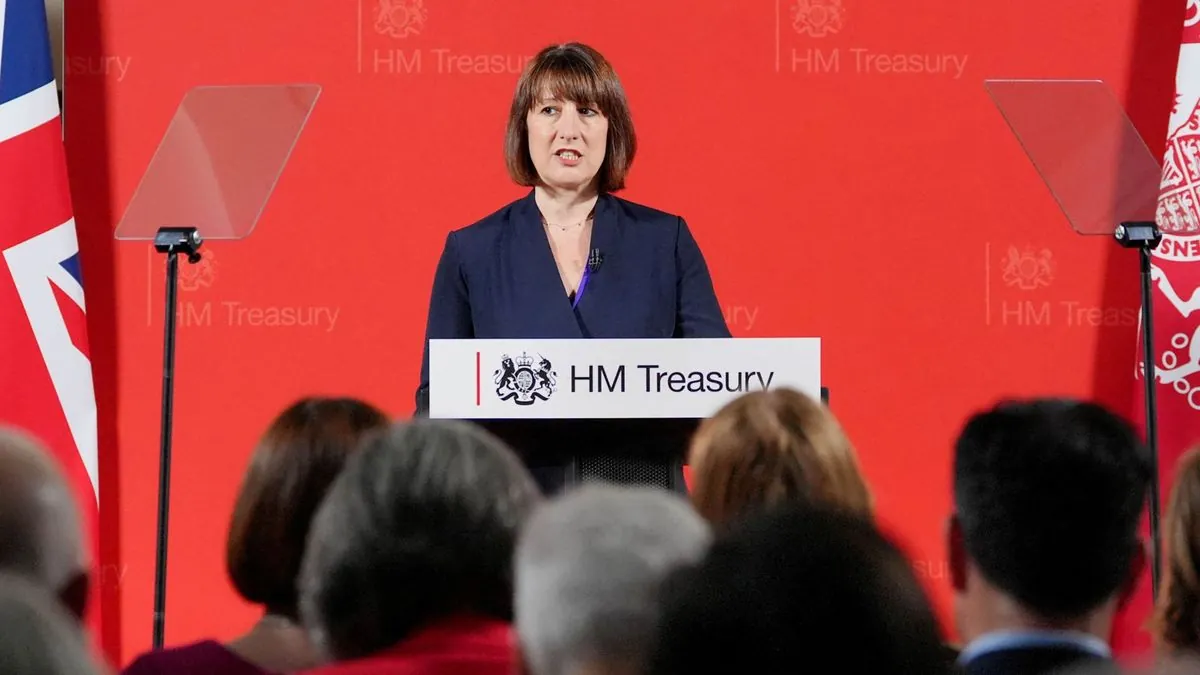UK Finance Chief Reeves Pledges Growth, No Austerity in Economic Vision
Rachel Reeves, UK's finance minister, promises no return to austerity and forecasts public spending growth. She defends tough decisions while expressing optimism about Britain's economic future.

In a significant shift from previous rhetoric, Rachel Reeves, the UK's finance minister, has outlined a vision of economic growth and increased public spending, marking a departure from austerity measures. Speaking at the Labour Party conference in Liverpool, Reeves emphasized the government's commitment to long-term growth and stability for businesses and families.
Reeves stated, "There will be no return to austerity. Conservative austerity was a destructive choice for our public services - and for investment and growth too." This declaration comes as a relief to many, considering the UK's history with austerity measures implemented following the 2008 financial crisis.
The finance minister's optimistic tone is a notable change from earlier warnings of a challenging budget. Despite acknowledging the need for "tough decisions" to address the Conservative Party's legacy, Reeves expressed unprecedented optimism about Britain's future. This positive outlook comes at a crucial time, as consumer confidence has recently plummeted due to pessimistic economic forecasts.

One of the key priorities outlined by Reeves is the protection of living standards and the improvement of the National Health Service (NHS). Established in 1948, the NHS has been a cornerstone of UK public services and a focus of political debate. Reeves emphasized the importance of "rebuilding Britain" through increased investment spending.
However, the Labour government faces criticism over its decision to cut winter fuel payments for some pensioners. The Winter Fuel Payment, a tax-free annual payment to help older people with heating costs, has been a contentious issue. Reeves defended this "difficult" decision, highlighting the need for tough choices in addressing the country's economic challenges.
In an effort to recover funds, the government plans to appoint a COVID corruption commissioner. This role will investigate over 650 million pounds worth of contracts awarded during the pandemic, addressing concerns about potential misuse of public funds during the crisis that began in 2020.
Reeves also reiterated Labour's manifesto commitments not to raise income tax, National Insurance contributions, Value Added Tax (VAT), or corporation tax. These pledges aim to provide stability and certainty for businesses and individuals alike.
"I have never been so optimistic about our country's future. If we can get this right then there is no end to what we can achieve as a country."
As the UK approaches the next fiscal year, which runs from April 1 to March 31, all eyes will be on Reeves' first budget, scheduled for October 30, 2024. With the UK's public sector net debt exceeding £2.5 trillion as of 2023, the government faces significant challenges in balancing growth ambitions with fiscal responsibility.
The Labour Party's economic vision comes at a time when the UK's GDP stands at approximately £2.5 trillion, and inflation, as measured by the Consumer Prices Index (CPI), remains a concern for policymakers and citizens alike. As Reeves and her team work to implement their economic strategy, the coming months will be crucial in determining the success of their approach and its impact on the UK's economic landscape.


































